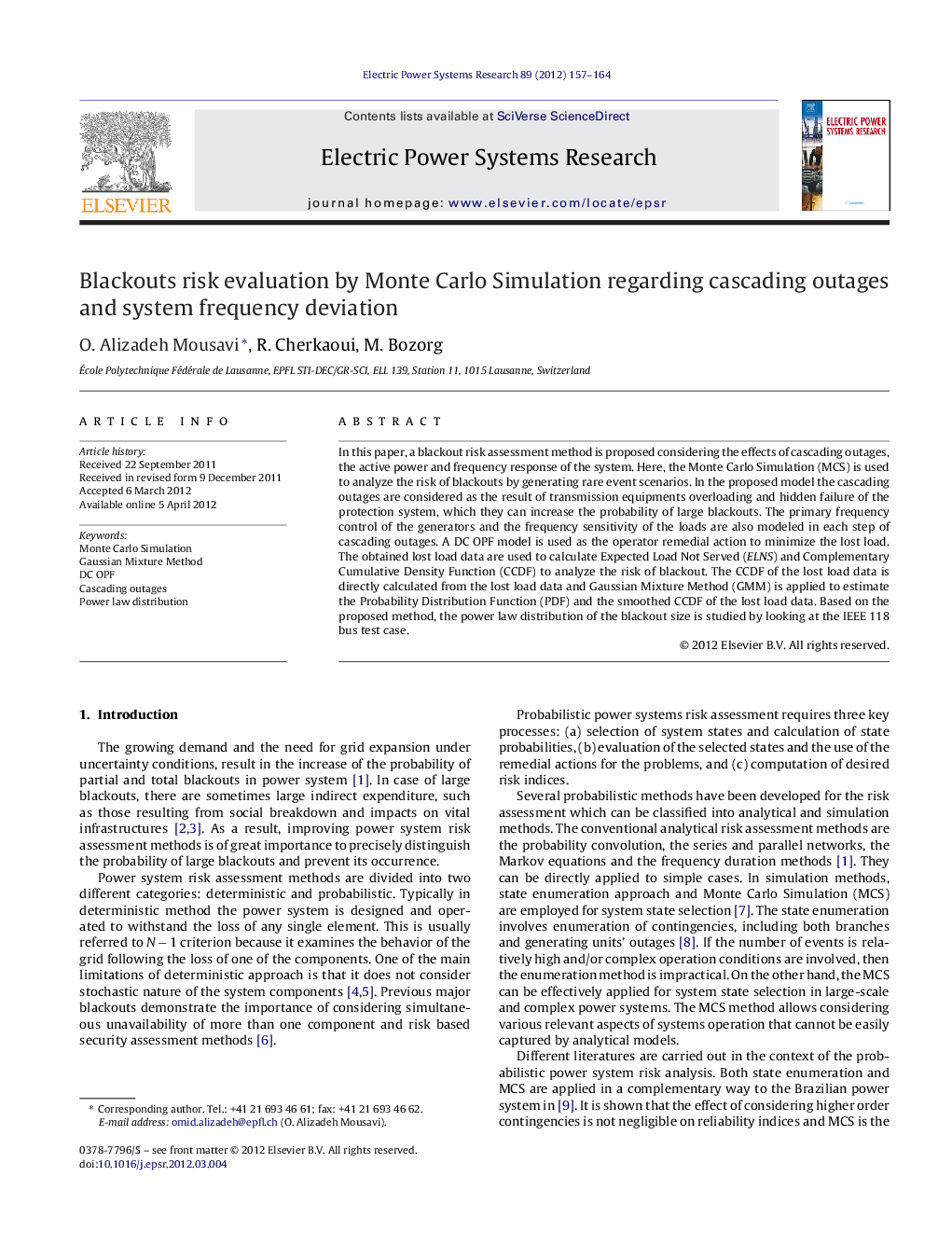| Article ID | Journal | Published Year | Pages | File Type |
|---|---|---|---|---|
| 704920 | Electric Power Systems Research | 2012 | 8 Pages |
In this paper, a blackout risk assessment method is proposed considering the effects of cascading outages, the active power and frequency response of the system. Here, the Monte Carlo Simulation (MCS) is used to analyze the risk of blackouts by generating rare event scenarios. In the proposed model the cascading outages are considered as the result of transmission equipments overloading and hidden failure of the protection system, which they can increase the probability of large blackouts. The primary frequency control of the generators and the frequency sensitivity of the loads are also modeled in each step of cascading outages. A DC OPF model is used as the operator remedial action to minimize the lost load. The obtained lost load data are used to calculate Expected Load Not Served (ELNS) and Complementary Cumulative Density Function (CCDF) to analyze the risk of blackout. The CCDF of the lost load data is directly calculated from the lost load data and Gaussian Mixture Method (GMM) is applied to estimate the Probability Distribution Function (PDF) and the smoothed CCDF of the lost load data. Based on the proposed method, the power law distribution of the blackout size is studied by looking at the IEEE 118 bus test case.
► Cascading outages due to overloads and hidden failure of the transmission system, and also the generators and loads response to the frequency deviation, should be considered in power system risk assessment to evaluate the risk of large blackouts. ► Monte Carlo Simulation (MCS) for providing contingency scenarios containing both generation and transmission outages, accompanying with variance reduction methods such as dagger sampling, could effectively demonstrate the power law distribution of the blackout size and consequently the risk of large blackouts due to cascading outages and the system frequency deviation. ► The convergence of the MCS in the case regarding cascading outages is slower than the case regardless cascading outages. ► Neglecting the effect of cascading outages would result in losing the most significant part of the lost load data.
